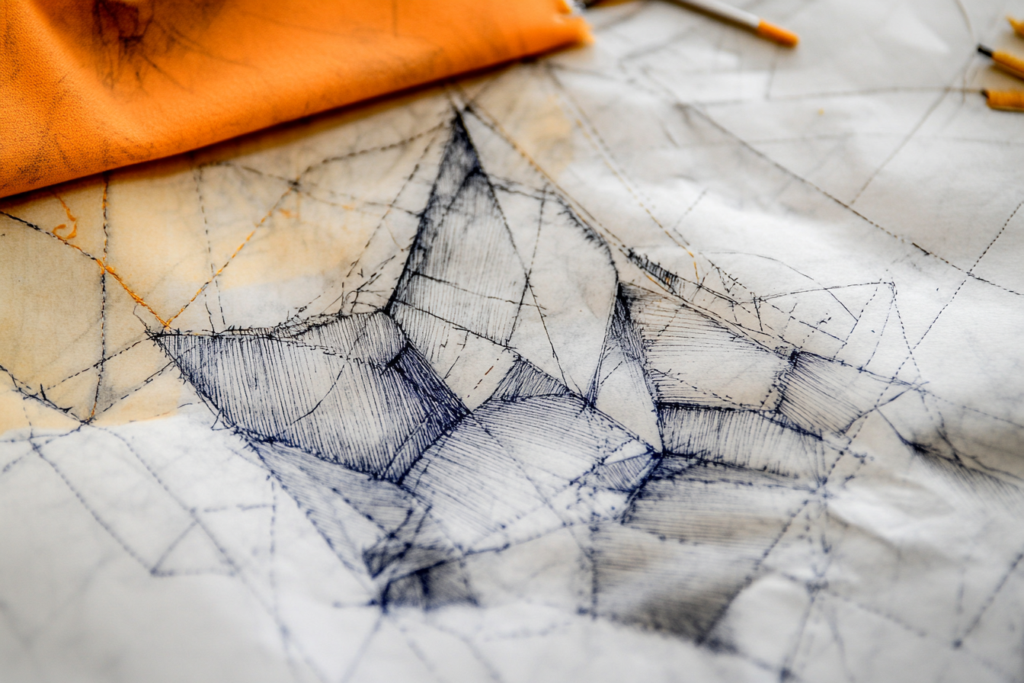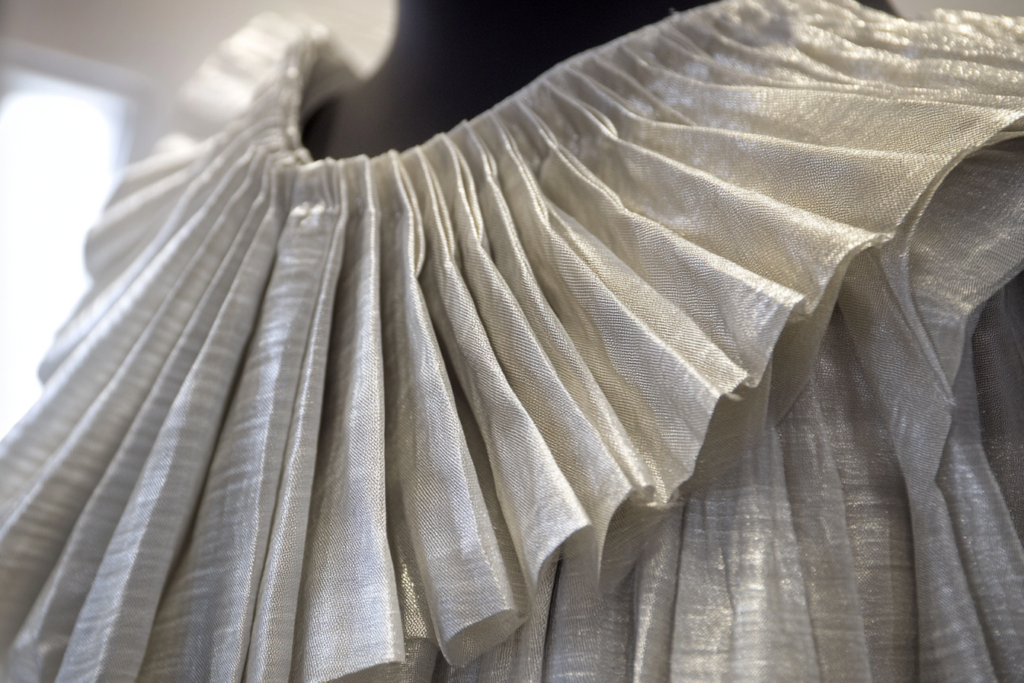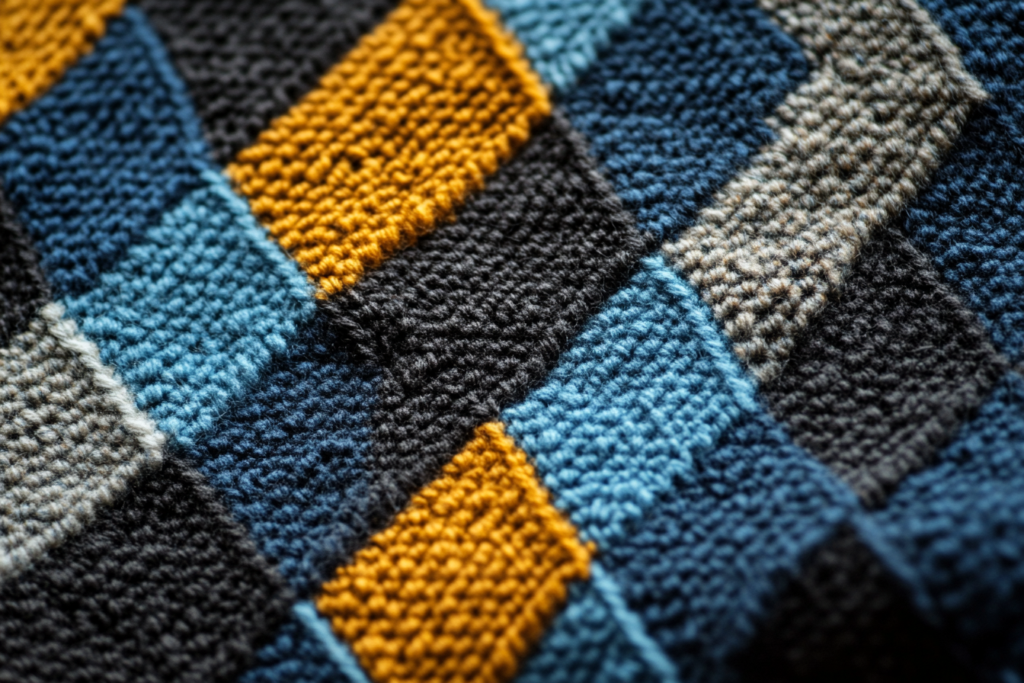Overedge Stitch: A Triangular Seam Finish for Clean, Durable Edges
Meta Description: An overedge stitch creates a triangular-shaped seam allowance, often trimmed to the correct width with shears. Learn how this stitch prevents fraying and strengthens fabric edges.
What is an Overedge Stitch?
An overedge stitch is a seam finishing technique where the seam allowance is shaped into a triangle and trimmed to the appropriate width using shears. This technique is commonly used to prevent fraying, reinforce seams, and provide a clean, professional edge.
It is often performed using an overedger (serger) or a specialized overedge stitch setting on a sewing machine.
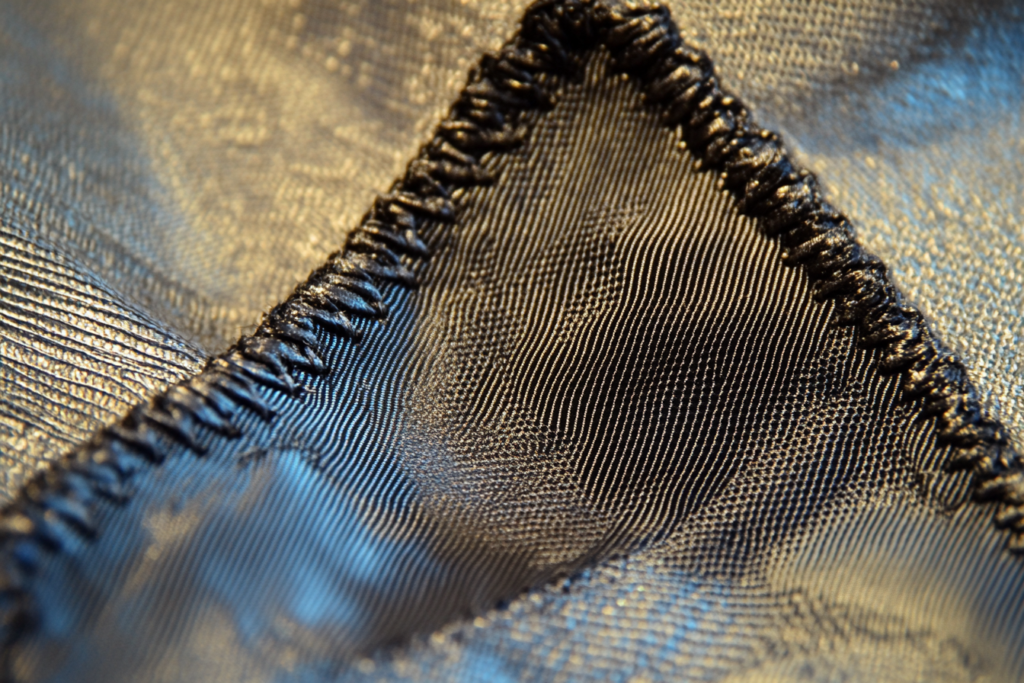
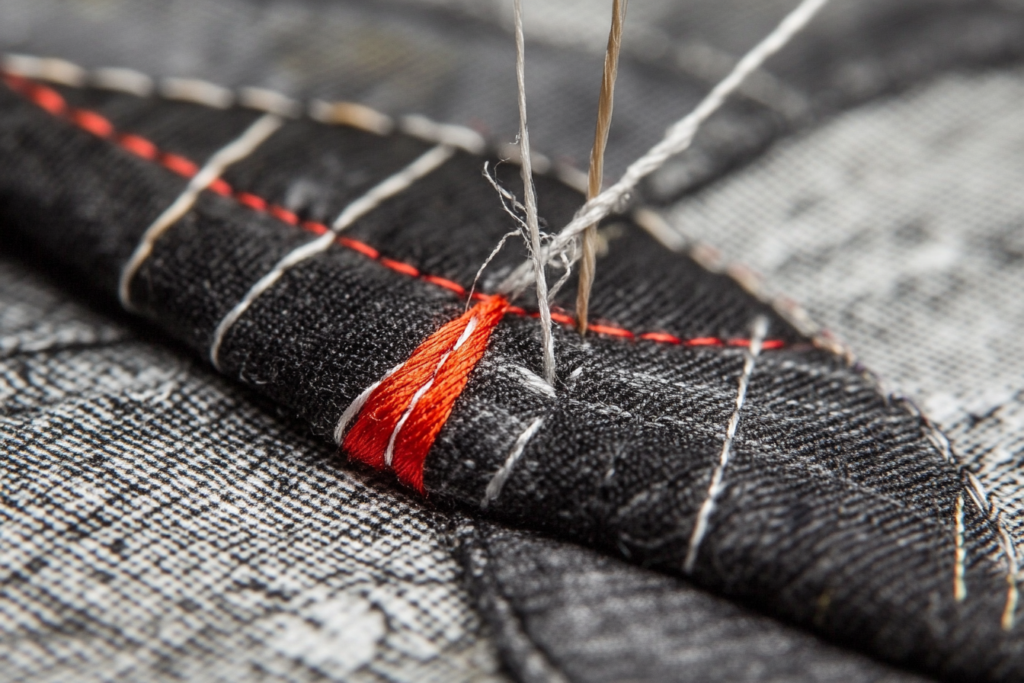
Key Features of an Overedge Stitch
✔ Creates a Triangular Seam Allowance – Designed for strength and flexibility.
✔ Trimmed to the Appropriate Width – Excess fabric is cut with shears or a serger’s built-in blade.
✔ Prevents Fabric Fraying – Helps reinforce raw edges and maintain garment durability.
✔ Used in Knitwear & Woven Fabrics – Common in apparel, upholstery, and industrial sewing.
✔ Works Well for Stretch & Delicate Materials – Provides a neat, flexible seam finish.
Where is an Overedge Stitch Used in Fashion?
📌 Ready-to-Wear Clothing – Ensures seams remain durable and fray-free.
📌 Undergarments & Lingerie – Used in soft fabrics for smooth, irritation-free seams.
📌 Activewear & Stretch Fabrics – Provides strong, flexible seams for sportswear.
📌 Outerwear & Heavy Fabrics – Used in jackets, coats, and workwear.
📌 Home Textiles & Upholstery – Reinforces fabric edges in furniture and décor items.
Types of Overedge Stitches
1. Single Overedge Stitch
- Uses one row of stitching to secure lightweight fabrics.
- Common in undergarments and soft materials.
2. Double Overedge Stitch
- Features two layers of overedge stitching for added strength.
- Ideal for medium-weight garments and stretch fabrics.
3. Overedge with Trimmed Seam Allowance
- Excess seam allowance is cut with shears or a serger.
- Used in woven fabrics, tailored garments, and structured apparel.
💡 Tip: Using an overedge stitch with a serger ensures a clean, precise cut while sewing.
Overedge Stitch vs. Other Seam Finishing Techniques
| Feature | Overedge Stitch | Overlock Stitch | Zigzag Stitch | Flatlock Stitch |
|---|---|---|---|---|
| Appearance | Triangular seam allowance | Looped stitch over fabric edge | Zigzag-shaped stitches | Flat seam with decorative stitching |
| Best For | Seam finishing & fray prevention | Knits, stretch fabrics | Lightweight fabrics | Sportswear & activewear |
| Seam Strength | Moderate to high | High | Medium | High |
| Commonly Used In | Apparel, tailoring, upholstery | Mass production, serged seams | Home sewing, simple projects | Performance wear, seamless garments |
💡 Tip: Overedge stitches provide a structured seam allowance, while overlock stitches work best for mass production and stretch fabrics.
How to Sew an Overedge Stitch
1️⃣ Set Up Your Machine – Use an overedge foot or a serger for precision.
2️⃣ Trim Excess Fabric with Shears or a Blade – Ensure the seam allowance is the correct width.
3️⃣ Sew Along the Fabric Edge – Keep the triangular seam allowance aligned for a clean finish.
4️⃣ Press the Seam for a Smooth Finish – Helps flatten the stitches and improve durability.
💡 Tip: If using a regular sewing machine, select an overedge stitch setting for the best results.
Why Choose an Overedge Stitch?
✔ Prevents Fabric Fraying – Ensures long-lasting, clean seams.
✔ Adds Strength & Durability to Seams – Great for high-stress garment areas.
✔ Provides a Professional Finish – Common in ready-to-wear and tailored fashion.
✔ Works with Various Fabrics – Ideal for knits, woven materials, and heavy fabrics.
✔ Reduces Bulk in Seam Allowances – Keeps garments lightweight and flexible.
Conclusion: The Importance of an Overedge Stitch in Sewing & Fashion
An overedge stitch is a crucial technique for professional seam finishing, ensuring clean, durable, and fray-free edges in garments and textiles. Whether used in ready-to-wear fashion, activewear, or upholstery, this stitch offers a polished, reinforced finish that enhances fabric longevity.
For designers, tailors, and home sewists, mastering the overedge stitch is essential for achieving high-quality, long-lasting seams.
